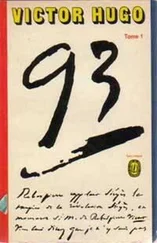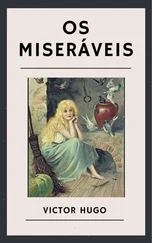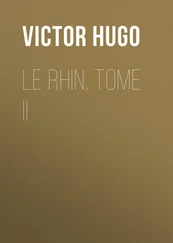Victor Hugo - Ninety-Three
Здесь есть возможность читать онлайн «Victor Hugo - Ninety-Three» — ознакомительный отрывок электронной книги совершенно бесплатно, а после прочтения отрывка купить полную версию. В некоторых случаях можно слушать аудио, скачать через торрент в формате fb2 и присутствует краткое содержание. Жанр: literature_19, foreign_antique, foreign_prose, на английском языке. Описание произведения, (предисловие) а так же отзывы посетителей доступны на портале библиотеки ЛибКат.
- Название:Ninety-Three
- Автор:
- Жанр:
- Год:неизвестен
- ISBN:нет данных
- Рейтинг книги:3 / 5. Голосов: 1
-
Избранное:Добавить в избранное
- Отзывы:
-
Ваша оценка:
- 60
- 1
- 2
- 3
- 4
- 5
Ninety-Three: краткое содержание, описание и аннотация
Предлагаем к чтению аннотацию, описание, краткое содержание или предисловие (зависит от того, что написал сам автор книги «Ninety-Three»). Если вы не нашли необходимую информацию о книге — напишите в комментариях, мы постараемся отыскать её.
Ninety-Three — читать онлайн ознакомительный отрывок
Ниже представлен текст книги, разбитый по страницам. Система сохранения места последней прочитанной страницы, позволяет с удобством читать онлайн бесплатно книгу «Ninety-Three», без необходимости каждый раз заново искать на чём Вы остановились. Поставьте закладку, и сможете в любой момент перейти на страницу, на которой закончили чтение.
Интервал:
Закладка:
Halmalo was a remarkable sailor. He performed miracles of skill and sagacity. The route that he improvised amid the reefs, the waves, and the vigilance of the enemy was a masterpiece. The wind had abated, and the struggle with the sea was over. Halmalo had avoided the Caux des Minquiers, and having rounded the Chaussée aux Boeufs, took refuge there, so as to get a few hours of rest in the little creek formed by the sea at low tide; then rowing southward, he continued to pass between Granville and the Chausey Islands without being noticed by the lookout either of Chausey or Granville. He entered the Bay of Saint-Michel, – a daring feat, considering that the cruising squadron was anchored at Cancale.
On the evening of the second day, about an hour before sunset, he passed the hill of Saint-Michel, and landed on a shore that is always avoided on account of the danger from its shifting sand.
Fortunately the tide was high.
Halmalo pushed the boat as far as he could, tried the sand, and, finding it firm, grounded the boat and jumped ashore, the old man following, with eyes turned anxiously towards the horizon.
"My lord," said Halmalo, "this is the mouth of the Couesnon. We have Beauvoir to starboard, and Huisnes to port. The belfry before us is Ardevon."
The old man bent over the boat, took from it a biscuit, which he put in his pocket, and said to Halmalo, —
"You may take the rest."
Halmalo put what remained of meat and biscuit in the bag, and hoisted it on his shoulder. Having done this, he said, —
"My lord, am I to lead the way, or to follow you?"
"You will do neither."
Halmalo looked at the old man in amazement.
The latter went on, —
"We are about to separate, Halmalo. Two men are of no use whatever. Unless they are a thousand, it is better for one man to be alone."
He stopped and pulled out of his pocket a knot of green silk resembling a cockade; with a fleur-de-lis embroidered in gold in the centre.
"Can you read?" he asked.
"No."
"That is fortunate. A man who knows how to read is embarrassing. Have you a good memory?"
"Yes."
"Very well. Listen, Halmalo. You will follow the road on the right, and I the one on the left. You are to turn in the direction of Bazouges, and I shall go towards Fougères. Keep your bag, because it makes you look like a peasant; hide your weapons; cut yourself a stick from the hedge; creep through the tall rye; glide behind the hedges; climb over fences and cross the fields: you will thus avoid the passers-by, as well as roads and bridges. Do not enter Pontorson. Ah! you will have to cross the Couesnon. How will you manage that?"
"I shall swim across."
"Excellent. Then you will come to a ford. Do you know where it is?"
"Between Nancy and Vieux-Viel."
"Correct. You are evidently familiar with the country."
"But night is coming on. Where will my lord sleep?"
"I can take care of myself. And where will you sleep?"
"There are plenty of émousses. I was a peasant before I was a sailor."
"Throw away your sailor hat; it would betray you. You can surely find some worsted head-covering."
"Oh, a cap is easily found. The first fisherman I meet will sell me his."
"Very well. Now listen. You are familiar with the woods?"
"All of them."
"Throughout this entire neighborhood?"
"From Noirmoutier to Laval."
"Do you know their names too?"
"I know the woods and their names; I know all about them."
"You will forget nothing?"
"Nothing."
"Good. Now mind. How many leagues can you walk in a day?"
"Ten, fifteen, eighteen, twenty, if need be."
"It will have to be done. Do not miss a word of what I am about to tell you. You will go to the woods of Saint-Aubin."
"Near Lamballe?"
"Yes. On the edge of a ravine between Saint-Rieul and Plédéliac there is a large chestnut-tree. You will stop there. No one will be in sight."
"But a man will be there nevertheless. On that I can depend."
"You will give the call. Do you know it?"
Halmalo puffed out his cheeks, turned towards the sea, and there rang the "to-whit-to-hoo" of the owl.
One would have supposed it came from the depths of a forest, so owl-like and sinister was the sound.
"Good!" said the old man. "You have it."
He extended to Halmalo the green silk knot.
"This is my commander's badge. Take it. No one must know my name at present; but this knot is sufficient. The fleur-de-lis was embroidered by Madame Royale in the Temple prison."
Halmalo knelt. Trembling with awe he received the knot embroidered with the fleur-de-lis, and in the act of raising it to his lips, he paused as if in fear.
"May I?" he asked.
"Yes, since you kiss the crucifix."
Halmalo kissed the fleur-de-lis.
"Rise," said the old man.
Halmalo obeyed him, placing the knot in his bosom.
"Listen carefully to what I am about to say. This is the order: 'Revolt! Give no quarter.' On the edge of the forest of Saint-Aubin you will give the call, repeating it three times. After the third time you will see a man rise from the ground."
"I know, from a hole under the trees."
"That man will be Planchenault, sometimes called Coeur-de-Roi. To him you will show this knot. He will know what it means. Then you are to go by ways that you must discover for yourself to the woods of Astillé, where you will see a cripple surnamed Mousqueton, a man who shows mercy to no human being. You are to tell him that I love him, and that he must stir up the parishes in his neighborhood. Thence you will go to the wood of Couesbon, which is one mile from Ploërmel. When you give the owl-cry, a man will come out of a hole; that will be M. Thuault, seneschal of Ploërmel, who formerly belonged to the Constitutional Assembly, but on the royalist side. You will direct him to fortify the castle of Couesbon, that belongs to the Marquis de Guer, a refugee. Ravines, woods of moderate extent, uneven soil, a good spot. M. Thuault is an able and upright man. From there you will go to Saint-Guen-les-Toits, and speak to Jean Chouan, whom I look upon as the actual leader, and then to the woods of Ville-Anglose, where you will see Guitter, called Saint-Martin; you will tell him to keep his eye on a certain Courmesnil, son-in-law of the old Goupil de Préfeln, and who is the head of the Jacobins of Argentan. Remember all this. I write nothing, because writing must be avoided. La Rouarie made out a list, which ruined everything. Thence you will go to the wood of Rougefeu, where Miélette lives, he who leaps across ravines by the help of a long pole."
"They call it a leaping-pole."
"Do you know how to use it?"
"Am I not a Breton peasant? The leaping-pole is our friend. It makes our arms bigger, our legs longer."
"That is to say, it reduces the enemy and shortens the way. An excellent machine."
"Once, with my leaping-pole, I stood my ground against three salt-tax men armed with sabres."
"When was that?"
"Ten years ago."
"Under the king?"
"Certainly."
"Against whom?"
"I really do not know. I was a salt-smuggler."
"Very good."
"It was called fighting against the collectors of the salt-tax. Is the tax on salt the same thing as the king?"
"Yes, and no. But it is not necessary for you to understand this."
"I ask monseigneur's pardon for having put a question to monseigneur."
"Let us go on. Do you know the Tourgue?"
"Do I know it! I came from there."
"How is that?"
"Why, because I come from Parigné."
"To be sure, the Tourgue borders on Parigné."
"Do I know the Tourgue! The great round castle belongs to the family of my lords. A large iron door separates the old building from the new part, which a cannon could not destroy. In the new building they keep the famous book on Saint-Barthélémy, which people come to see as a curiosity. The grass is full of frogs. When I was a boy I used to play with those frogs. And the underground passage, too. Perhaps I am the only one left who knows about that."
Читать дальшеИнтервал:
Закладка:
Похожие книги на «Ninety-Three»
Представляем Вашему вниманию похожие книги на «Ninety-Three» списком для выбора. Мы отобрали схожую по названию и смыслу литературу в надежде предоставить читателям больше вариантов отыскать новые, интересные, ещё непрочитанные произведения.
Обсуждение, отзывы о книге «Ninety-Three» и просто собственные мнения читателей. Оставьте ваши комментарии, напишите, что Вы думаете о произведении, его смысле или главных героях. Укажите что конкретно понравилось, а что нет, и почему Вы так считаете.












